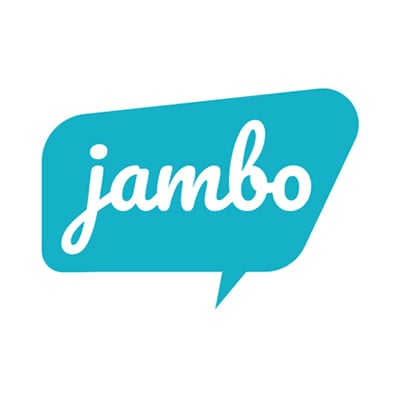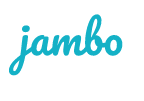In stakeholder and community engagement, when we hear words like "concerns," "issues," and "grievances," we tend to think of them as negative, high-risk topics; but that's not always the case. Stakeholder concerns or issues can vary in severity. It may start as a piece of feedback or even a comment. While the impact and priority of the concern or issue may differ, they may all require monitoring or some action on your part; either way, they must be tracked.
This is where stakeholder engagement software can help: it allows you to clearly and efficiently manage any concerns that arise throughout your projects. Stakeholder engagement software is designed to manage your communications and relationships with stakeholders, communities, governments, and organizations. It helps you organize all your interactions and document the whole journey for every concern, issue, or grievance brought to your attention, regardless of severity.
Why is it important to stay on top of stakeholder concerns?
While not all stakeholder concerns are high risk, some can impact your ability to move forward, secure approvals or permits, maintain your organization's reputation, or sustain positive stakeholder relationships.
Below, we've explored a few reasons why it's essential to stay on top of every stakeholder concern and how stakeholder engagement software can help.
1. Meeting regulatory requirements
In some situations, there may be a regulatory requirement that must be met with a duty to mitigate or make a substantial effort toward resolution. Here, documentation is crucial. You need to be able to provide records showing you've done everything you can to reach the stakeholder's or community's ideal solution, even if that solution is beyond your control.
With everything logged and tracked in stakeholder engagement software, you can create a comprehensive report to show exactly what you and your team have communicated and done regarding the concern or issue.
Jambo Example: The issues module includes a detailed timeline that lets you track all issues and show your efforts to address them. This gives you a simple and understandable way to visually communicate and share your progress on each issue.
2. Lowering project risk
While many stakeholder concerns start minor, you want to be mindful that they can escalate into high-risk issues if they're not taken seriously from the start.
This can be especially problematic for people who aren't tracking each concern as it arises. Without your concerns and issues being tracked and organized in stakeholder engagement software, it can be challenging to sift through all the data you've collected to separate generic day-to-day conversations from potential high-risk situations. Without the data in one place or linked to your stakeholders, it's easy to lose track of a concern, which can add unnecessary risk and pressure to your project plans.
Jambo Example: If you've had a conversation with a stakeholder and two items discussed were 'concerns' (i.e. they require an action from you), you can log those two concerns as issues in Jambo. This ensures you can monitor and address them before they become more serious and add risk to your project.
3. Learning from previous concerns
If your team is currently engaging with, or planning to engage, stakeholders or communities your organization has encountered before, you will want to be aware of any issues or concerns they raised previously, as this can help you anticipate future conversations.
Additionally, many stakeholders and community members who have engaged with your organization in the past will expect you to understand those previous concerns or issues, even if you weren't involved, so it's essential to review meeting notes.
With stakeholder engagement software, you can review stakeholder profiles to see the historical conversations and issues they were involved in. If issues were successfully addressed, you can learn how team members approached them and discover viable solutions you might not have considered.
Jambo Example: With Jambo's global view, you can search across all your projects for any issues raised by your current stakeholders or communities. This ensures the information you need is always at your fingertips, even if it's issues or concerns from projects completed many years ago. If people change positions or jobs, Jambo keeps historical records accurate so you can see the concerns raised by individuals in a community or organization, even if they are no longer there.
Tips for staying on top of stakeholder concerns with stakeholder engagement software
1. Track concerns as soon as they arise
To prevent issues or concerns from escalating, identify them early on and track them as soon as you learn about them. For example, if you receive an email from a stakeholder who has raised a concern, make sure you log the issue in your stakeholder engagement software right away, along with any messaging you shared in response.
When issues are forgotten, stakeholders or community members may feel annoyed or ignored. Logging issues and monitoring them as soon as they occur helps you stay on top of them and understand common themes that can help you step in and de-escalate a potentially risky situation if needed.
Jambo Example: Everything in Jambo is connected, so as you add new issue updates, you'll be able to see everything traced back to the original issue and related conversations. This means you can easily review and understand the whole story as it's unfolding. It is also super helpful when illustrating how you worked to resolve an issue.
2. Create an update plan
When managing your concerns and issues, set out a plan with a timeline for updates and share it with involved stakeholders or community members. Communication is key – if they don't hear from you or know when they can expect to hear from you, they may become frustrated. If issue updates are required, you can create tasks in your stakeholder engagement software to keep them top of mind. You want to act promptly to keep things moving forward while being cautious to preserve the social capital and positive relationships you've worked hard to build.
Jambo Example: With Jambo's tasks feature, you can pre-schedule tasks for yourself or your team to ensure you check in regularly. In Jambo, records are connected, so each assigned task is linked to its related issue. This gives teams all the context and history they need to complete their tasks, track issue status, and understand the entire situation.
3. Review concerns regularly
Review stakeholder concerns and issues regularly, whether it's before you meet with a stakeholder or community, or at a scheduled time, to ensure you're always up to date with your team's progress.
Regularly reviewing the data logged in your stakeholder engagement software can help you identify gaps. For example, if you haven't communicated with a stakeholder or community member recently about a concern or issue they raised, you can plan to check in with them. Or if you are meeting with a stakeholder or community, you can review any ongoing or historic issues to which they are connected. This can help you plan out your communication and key messages ahead of the meeting.
These types of insights help ensure you're working to resolve your concerns and issues and show your stakeholders and community members that you listened and take their perspectives seriously.
Jambo Example: Before a meeting with a stakeholder, you can review their profile in Jambo. If there's an issue or concern related to that stakeholder, you can review the complete update timeline so you enter the meeting better prepared.
If similar concerns are being raised with stakeholders or communities, whether it's concerns about a specific area or around a particular topic or theme, pay attention to this information, as it can be important for your engagement plans. For example, you might notice times of year when issues are raised, specific topics related to those concerns, or particular stakeholders or community members raising the same concerns.
Stakeholder engagement software can help you understand when these trends or themes are arising in your projects. Understanding this kind of information means you can better prepare your key messages to meet your stakeholder and community expectations, adjust your plan if needed, and prepare resources if you notice common concerns you hadn't anticipated.
If you're using stakeholder engagement software, take the time to learn the tools that can help you stay on top of stakeholder and community concerns.
Try to organize and connect your data. As we know, there's rarely just one conversation associated with an issue, so it's essential to be able to associate multiple discussions with a single issue to connect and organize all your information. Reach out to your customer success team to ensure you are using your software to its full potential.
Stakeholder engagement software can help you manage your project concerns and issues more effectively. It can help you track all your interactions and communications, understand issues, organize them by impact and priority level, and serve as a centralized location for collaborating with your team to keep your projects moving forward.
Our stakeholder engagement platform, Jambo, is designed to help you manage any concerns or issues that arise in the most stress-free and effective manner possible. To learn more about Jambo and see our issues module in action, book a 15-minute discovery call with a Jambo expert!











